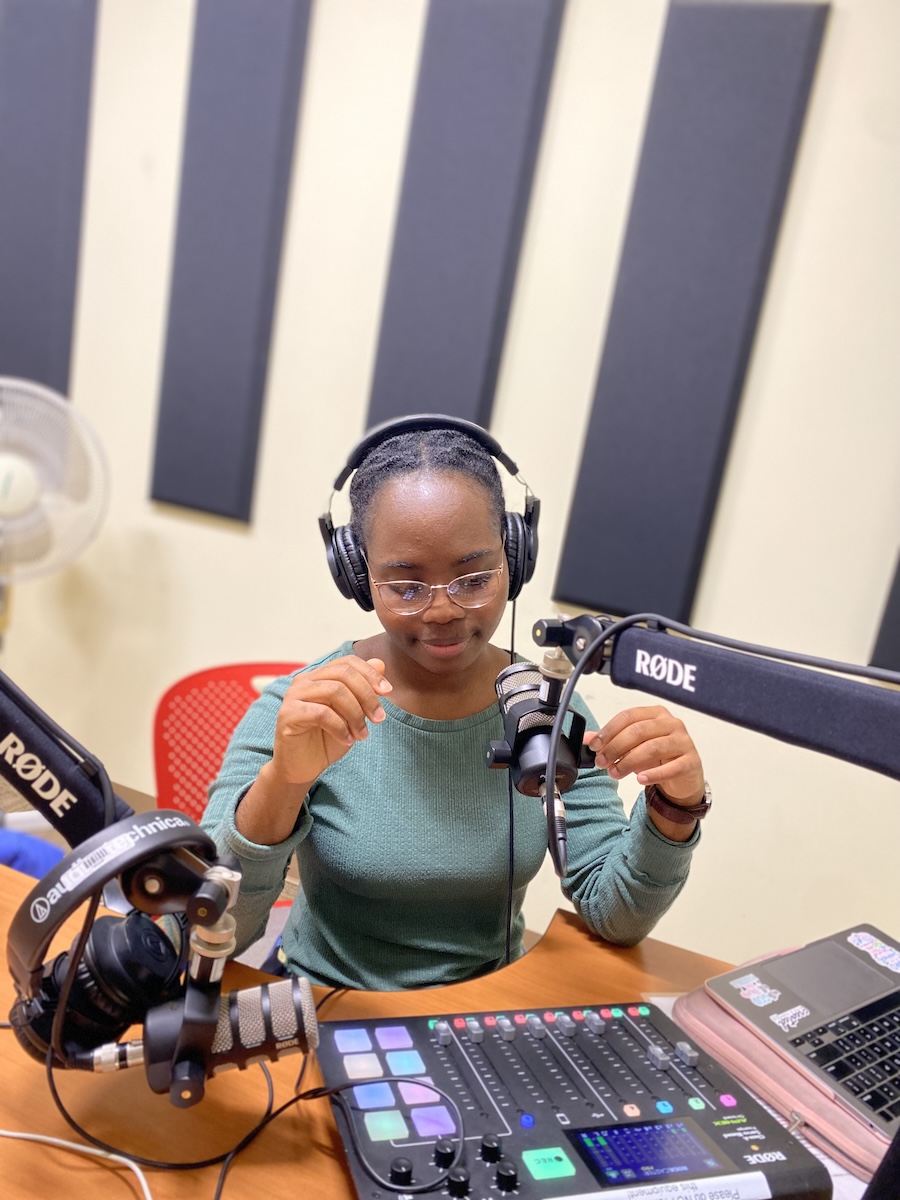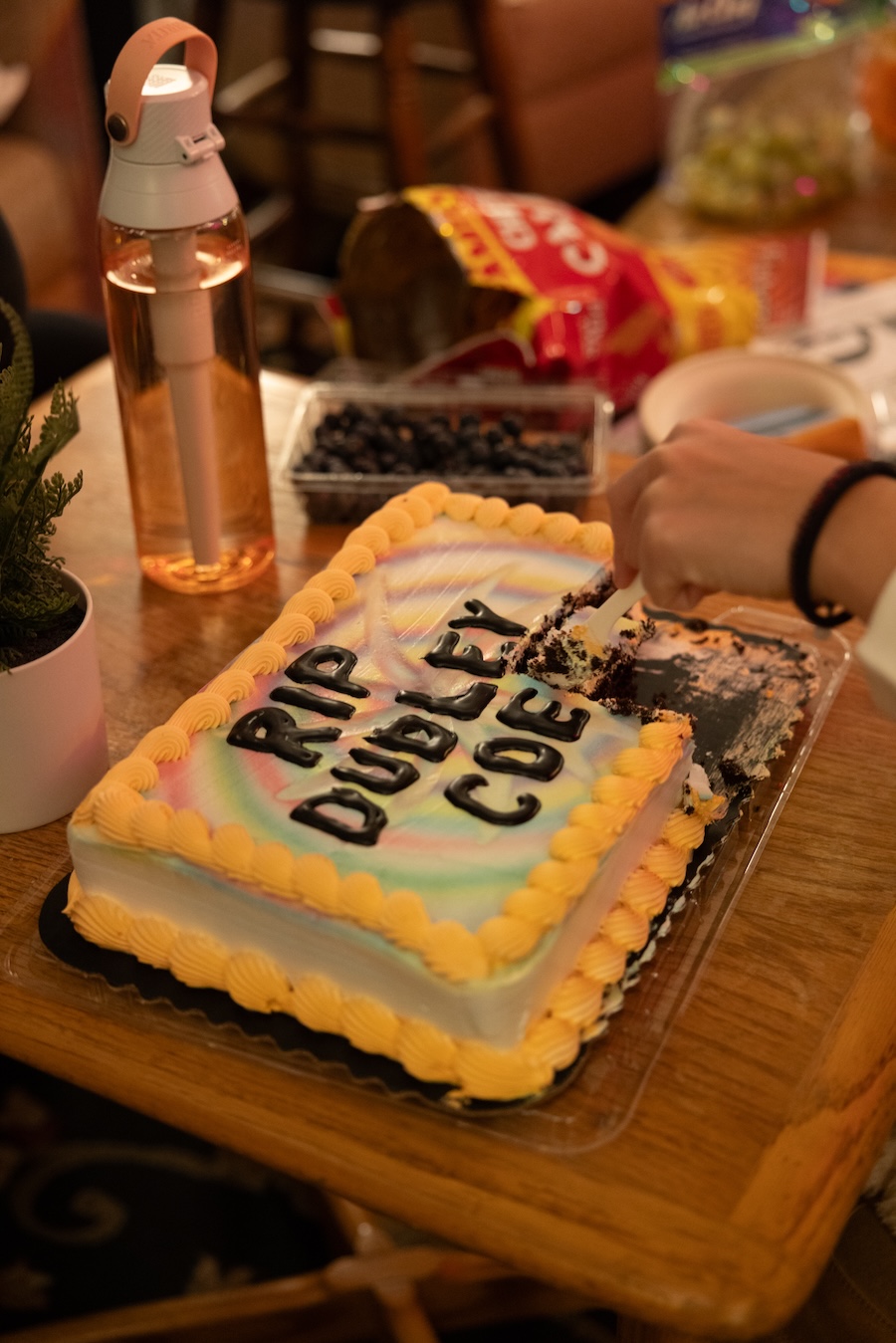At Bowdoin, Sen. Angus King Explains His Decision to Back Clinton
By Rebecca Goldfinr


Casually dressed and perched atop a table in Hubbard Hall, Sen. Angus King (I-Maine) explained to a group of students how he came to his decision to back Hillary Clinton for president.
King said that one experience influenced his thinking the most, and he described it in detail. Last winter, he was invited as a member of a congressional subcommittee focused on nuclear weapons to ride on a jet nicknamed the “Doomsday plane.” The official name for the jet is the National Airborne Operations Center, and its mission is to serve as the communications link between the president and the armed forces, particularly during a nuclear attack. Read King’s recent editorial about his endorsement.
Halfway through the trip, the plane’s crew began to simulate a nuclear attack. “I can’t tell you too much about the details because it is classified, but I can tell you it was a very sobering experience,” King said. “Because what hit me…was what a short decision time the president had—minutes, not hours or days.”
He continued: “And the second thing that hit me was so powerful, it was physical, I almost lost my breath, is that in that situation, where our country is under attack and a decision has to be made that could end civilization, there is only one person. There is no Congress, no checks and balances, no Supreme Court, no counsel of advisors, no poll, no election. There is one person…making the decision about the fate of our civilization. And I thought, ‘I really don’t want Donald Trump in that situation.'”
King said Trump is “too volatile, he sends tweets in the middle of the night, any slight or taunt he has to say something, and his rhetoric is so inflammatory.”
As for Hillary Clinton, King said that while he didn’t know her personally, his impression of her was that “she is pretty cool.” He pointed to her unflappability during the 11-hour congressional hearing on Benghazi as an example of her composure and unflappability.
King’s visit to Bowdoin followed two other recent political talks on campus: the first with Senator Susan Collins (R-Maine), and the other with conservative commentator Dinesh D’Souza. Earlier in the semester, noted activist Noam Chomsky gave a political talk. In addition, students have held a number of election-related events here to help inform their peers about statewide ballot issues and candidates’ platforms. King was accompanied by Brownie Carson ’69, who is the Democratic candidate for Maine Senate District 24, which includes Brunswick.
“The country is divided, and until the country has some sense of unification, I don’t see how it’s going to happen in Washington.”
—Sen. Angus King, Nov. 3, 2016
King then switched gears to discuss the election and campaigns more broadly. He described the race this year as “really disturbing.” He repeated an observation he had heard recently—that Trump and Clinton are running for president of two different countries. “The two countries aren’t talking to each other, and they don’t understand each other and they’re angry with each other,” he said. “We need to find out why, what’s wrong.” He said when the election ends, he’ll travel to northern Maine, where Trump support is strong, to listen to people, their frustrations and disappointments, to understand what government can do better.
After a student asked him about partisanship in Congress, King said DC partisanship reflects the division in the country. “The country is divided, and until the country has some sense of unification, I don’t see how it’s going to happen in Washington.”
He criticized gerrymandering, the practice of redrawing congressional districts for partisan advantage, calling it one of the huge problems in the country today, because it helps to elect candidates who are ideologically extreme. “Right now we have people running to the edge, and we really need people running toward the middle,” he said. He recalled a conversation he had with a Florida representative who said that back at home, his biggest political risk is if, during the primaries, voters get the idea that he is “willing to compromise,” or is known to have met with President Obama. “That’s a dangerous idea,” King said.
When another student asked King for clarification about his standing with Democrats and Republicans, the Independent senator said, “I vote with the Dems most of the time because I agree with them most of the time. When I became an Independent in the early ’90s, the Republican Party was a lot different than it is today. It has moved so far to the right it is harder for me to find areas of agreement. When I run for reelection in two years, people will say, ‘he’s really a Democrat,’ but that’s because the Republicans haven’t given me much to vote for.”
In particular, King was critical of the Republican Party’s refusal this past year to grant President Obama’s Supreme Court nominee Merrick Garland a hearing. “That wasn’t right, particularly with a guy like him,” King commented. “He’s a judge’s judge, a thoughtful nonpartisan, not an ultra-liberal or an ultra-conservative. That was terrible, terrible, a misuse of process and a failure to do the job we were elected to do.”
In answer to another question about his independent stance, King responded that he differed with many Democrats because he was more skeptical about the effectiveness of regulations placed on business. “I feel that we over-regulate. It takes too long, costs too much. And that doesn’t mean waving environmental permits, but it means having a system that is timely and predictable,” he said.
King said he’s also worried about the country’s debt and the ability for the US to continue paying for such ballooning costs as social security and Medicare. “If you are borrowing, and you cut taxes, you’re just increasing the deficit, and someone else will have to pay….You’re just shifting the tax from our generation to your generation, and it’s outrageous.”
King urged the students to make their perspectives heard, to ensure that policymakers hear from young people as well as older people. “The ridiculously wonderful thing about our system is how accessible it is,” he said, adding with a smile that he didn’t quite choose the right word when he used ‘ridiculous.’ “You can go up to Augusta and make a difference on a bill, walk around and talk to legislators right in the hall. We listen. If you’re engaged, you can get stuff done.”



